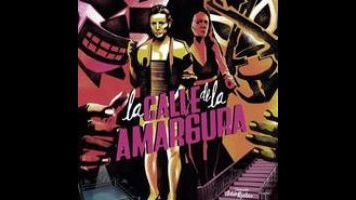Bleak Street gets only salaciousness out of a bizarre true story

On June 29, 2009, Alberto Pérez Jiménez and Alejandro Pérez Jiménez—twin brothers who worked in Mexico as professional wrestlers—were murdered by a couple of prostitutes. Their deaths may well have been accidental, though that didn’t prevent the guilty parties from receiving 47-year prison sentences. The plan, Mexican police theorized, was for the women to knock the brothers unconscious, using eyedrops surreptitiously mixed into their drinks, and then rob them. Unfortunately, the prostitutes didn’t consider, when calibrating their dosage, that the Pérez Jiménez brothers were little people. (Mexican wrestling, or lucha libre, commonly features miniature versions of champions, played either by little people or just by uncommonly short men.) The whole affair was so bizarre and lurid that it inspired an episode of Jerry Springer’s Tabloid, which recreated the murders in addition to interviewing surviving family members.
Bleak Street, the latest feature from renowned Mexican director Arturo Ripstein (probably best known in the U.S. for his 1996 film Deep Crimson, based on the same real-life case as The Honeymoon Killers), is light years classier and more artful than anything Jerry Springer has ever touched. Still, neither Ripstein nor his wife and regular screenwriter, Paz Alicia Garciadiego, succeed in unearthing (or inventing) anything of more than sensational interest from this tragedy. The movie lives up, or perhaps down, to its name, emphasizing the tawdry and the pathetic at every possible opportunity; even the use of black-and-white registers as dingy rather than lustrous. One of the prostitutes, Dora (Patricia Reyes Spíndola), has a gay husband (Alejandro Suárez) who likes to have sex with young boys while wearing Dora’s underwear—a detail that has no real bearing on the narrative. Even if it’s based on reality (and it doesn’t appear to be), this element, along with several others, feels cheap, merely adding one more sad and salacious log to the fire.
Ripstein’s talent does ensure that Bleak Street isn’t entirely pointless. Here and there, the film’s incessant dolor works in its favor; while there’s nothing revelatory about noting that the women were driven to their crime by economic necessity, scenes showing how unforgiving the streets are to middle-aged prostitutes can’t help but be poignant. Visually, Ripstein makes strong use of locations that look strangely like back-lot (which is to say, dreamlike) versions of alleys and hovels, and he makes the most of the similarly oneiric image of twin little people wearing stylized masks that they never remove, even when kissing their mother or drinking a beer. (They just roll the bottom of the mask up over their lips, then right back down.) Ultimately, however, Bleak Street never quite manages to justify its existence, which makes it come across as hollow at best and exploitative at worst. The true story that inspired it raises eyebrows, but those raised eyebrows are all the film provokes, as well. That just isn’t enough.